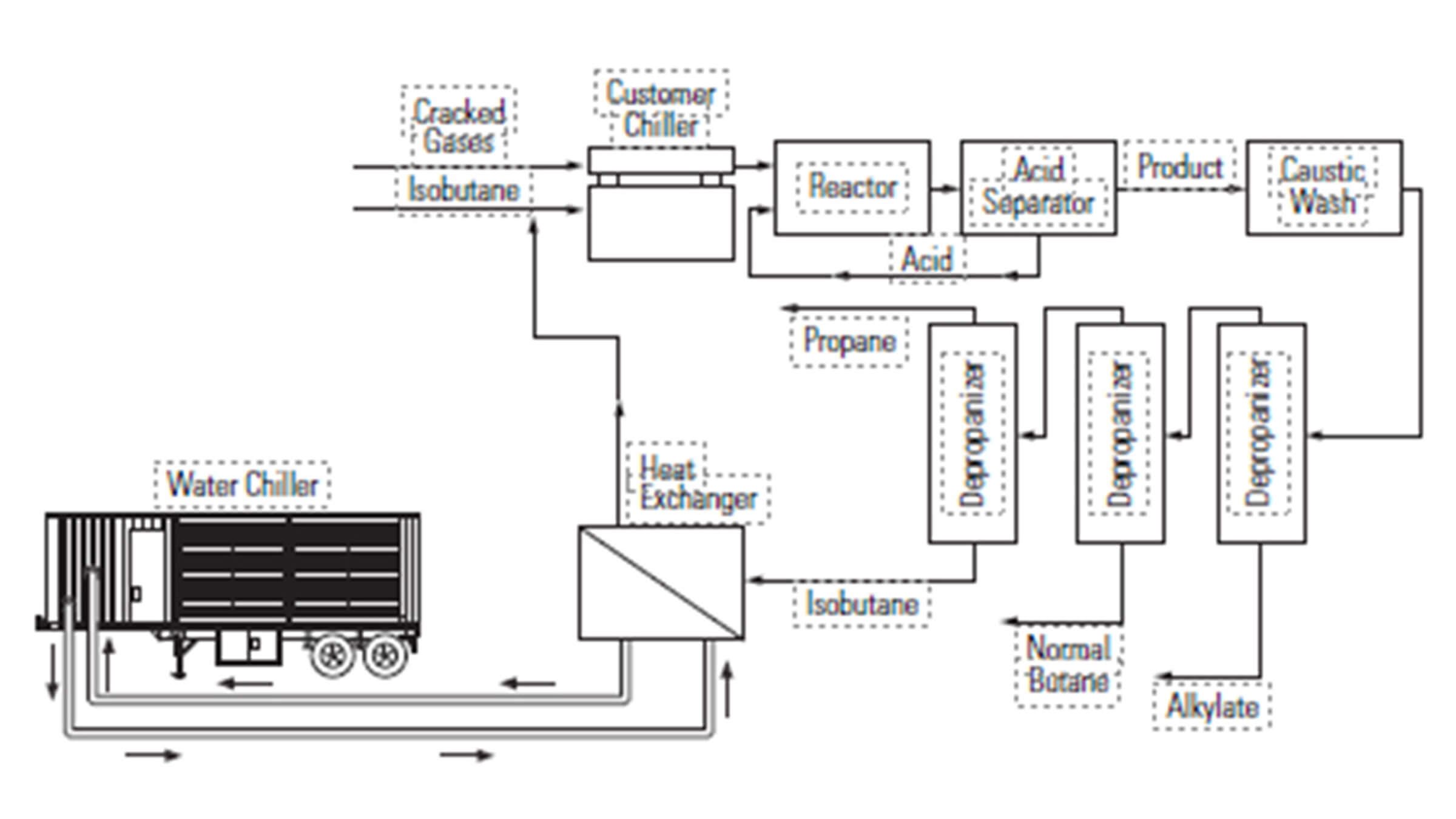Alkylation (Alky) Cooling
Oil refineries employ chemical reaction processes to produce alkylate, a product that is blended with gasoline to increase its octane rating and lower its vapor pressure. Many of these processes use sulfuric acid as the catalyst, which requires low reaction temperatures. Stationary chillers are often used to maintain sufficient cooling for reaction to take place; however, they may not have sufficient capacity to overcome high ambient temperatures during the summer months. The diagram below shows a typical refinery installation for alkylation cooling.
Rental equipment typically used for alky cooling applications includes the following:
Chiller modules ranging from 150 to 525 tons
Pump modules
Piping and fittings
Engineering and supervision services
Installation and maintenance services
On-site operation and training
Typical Customers:
Alkylation processes are used exclusively in the petrochemical industry. Oil refineries are the principal customers for these types of temperature control applications.
Discovery Questions:
The following questions may help you identify your needs for rental solutions to support your alkylation processes:
Could you benefit from lower reaction temperatures in your alkylation units? Why or why not?
What method do you currently use to cool the alkylation reaction?
Are your cooling towers and/or heat exchangers scheduled for repair, maintenance, or replacement?
Are your production processes heat-limited during the summer months?
Configuration and Installation Issues
Supplemental cooling applications typically operate in lieu of the customer’s cooling system. Determine the required input and output temperatures and pressures when sizing the chiller. A pump and/or circulation tank may also need to be added to the circuit.


